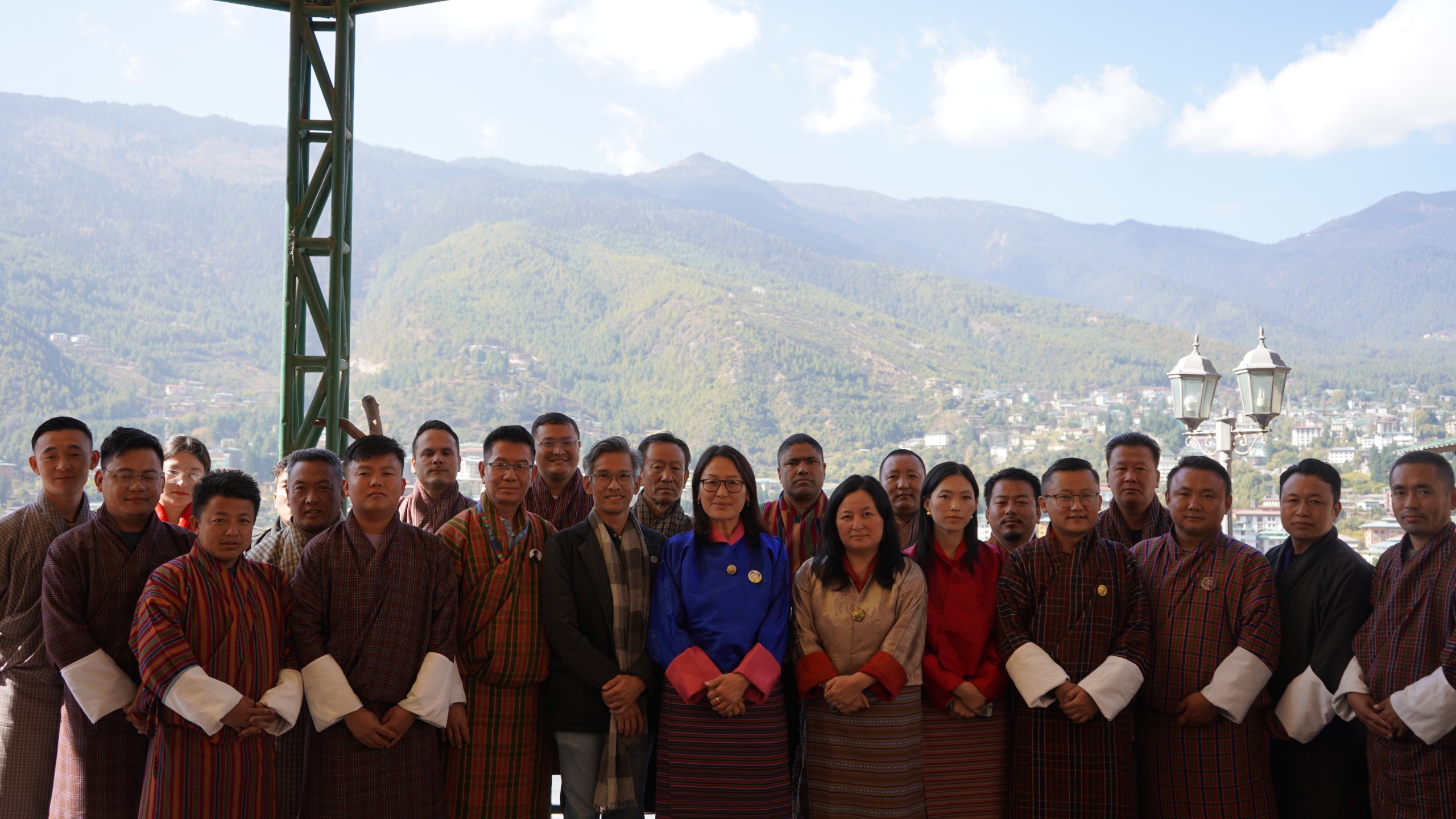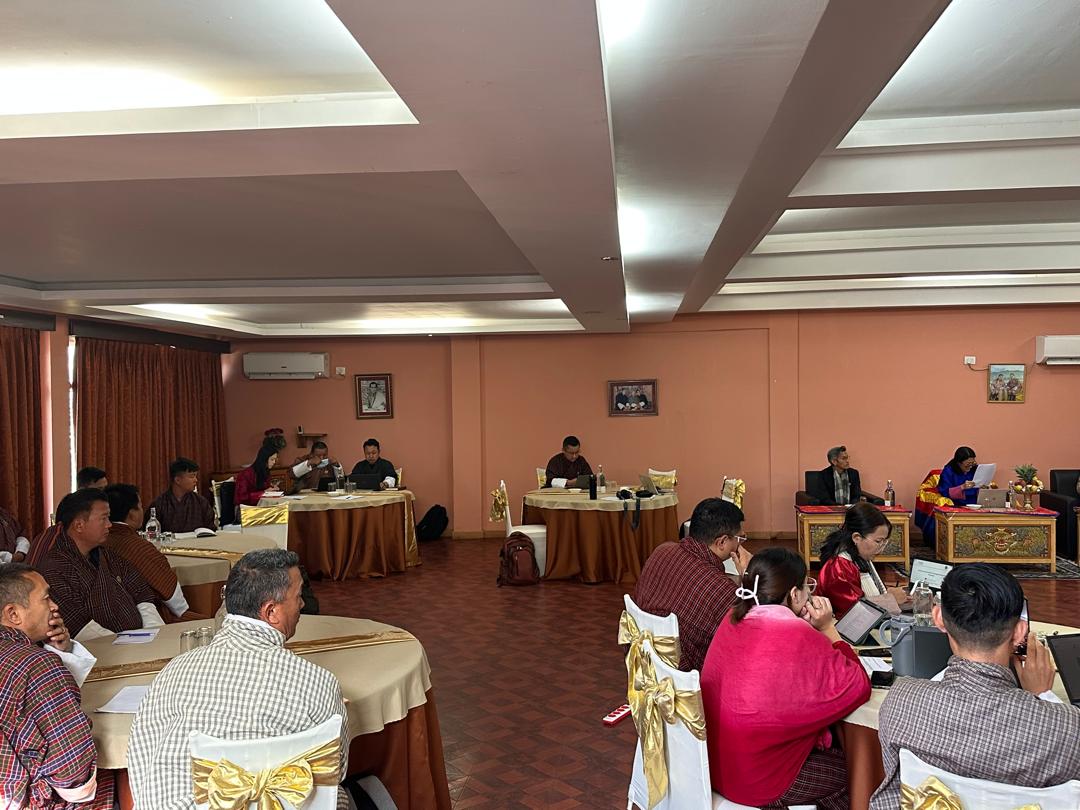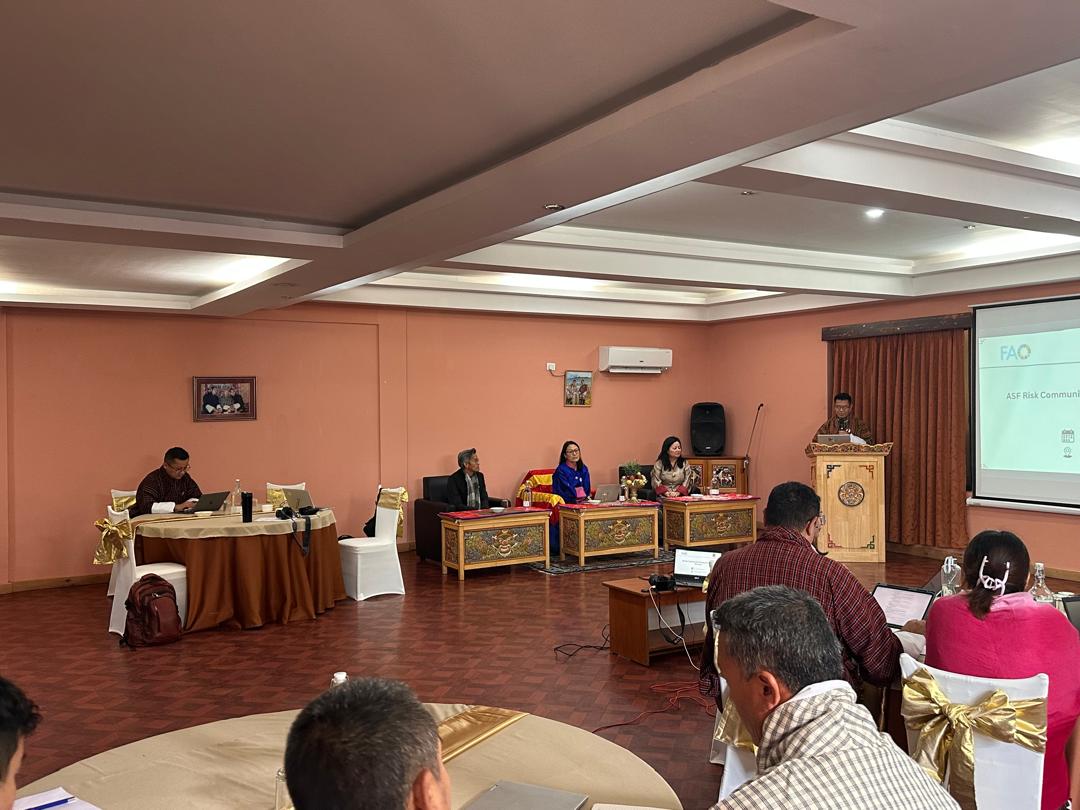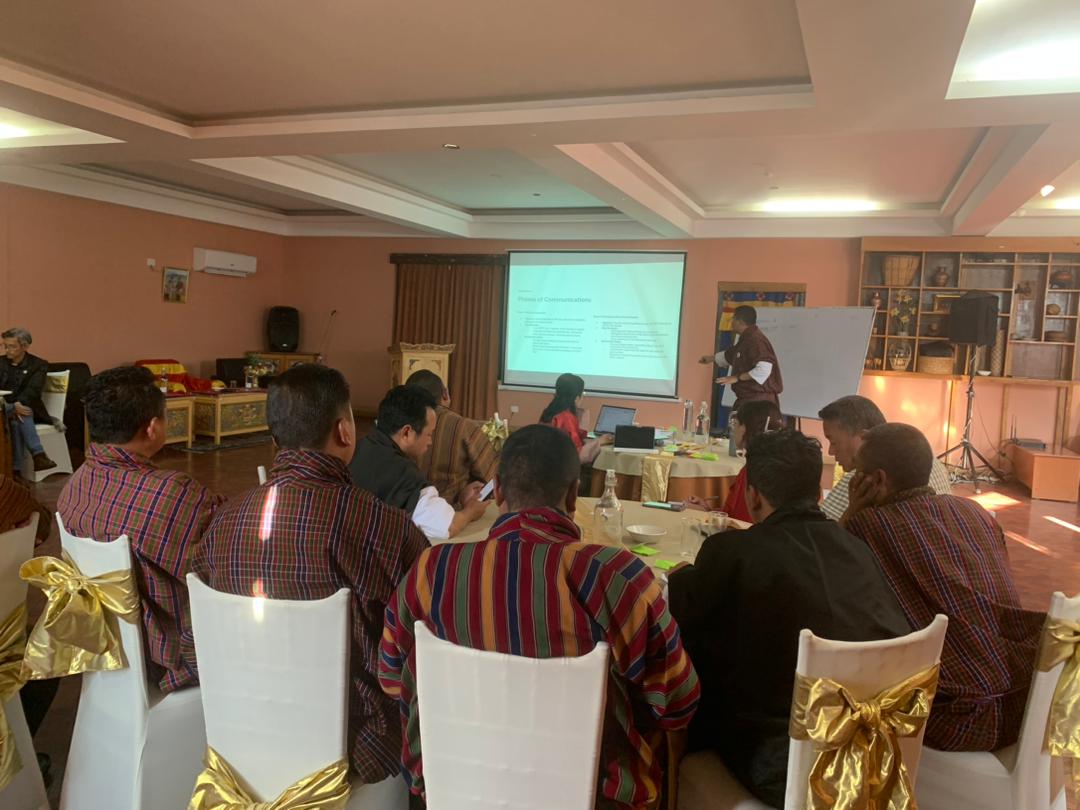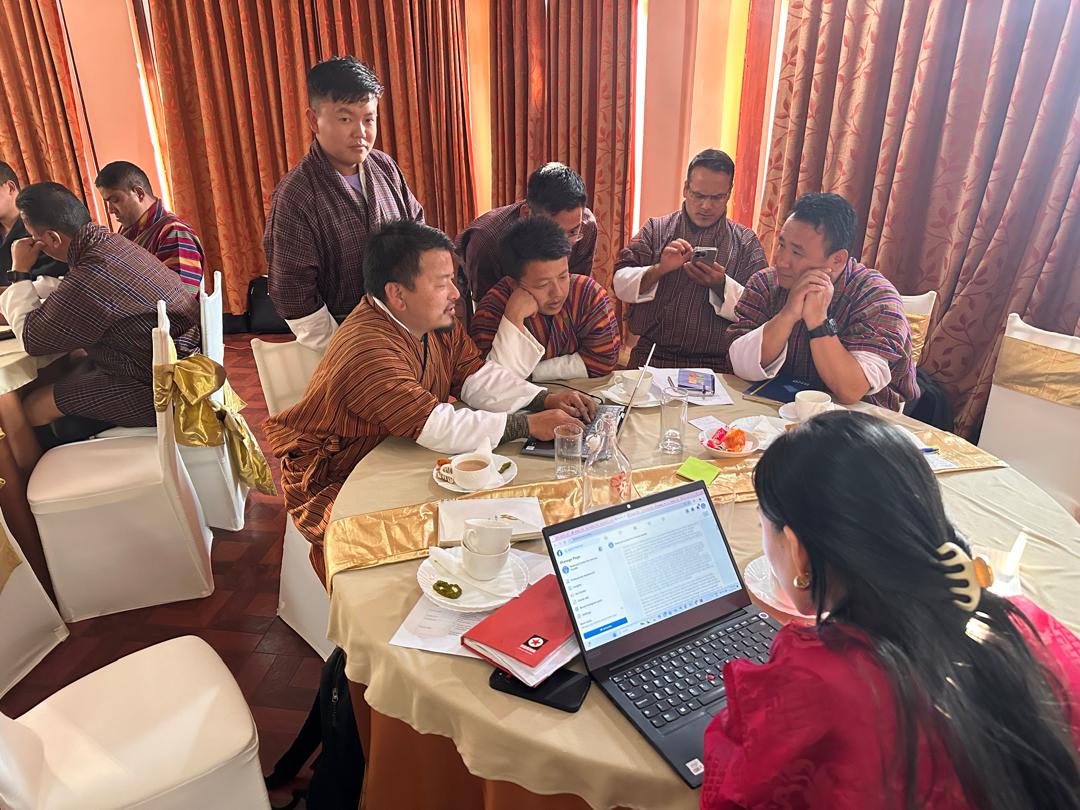The National Center for Animal Health (NCAH), under the Department of Livestock, Ministry of Agriculture and Livestock, in collaboration with the Country Office of the Food and Agriculture Organization (FAO), is conducting a two-day (18-19 November 2024) workshop at Jambayang Resort, Thimphu, to develop a risk communication strategy for African Swine Fever (ASF). This workshop is a part of the ongoing Emergency Technical Cooperation Programme (eTCP) for ASF.
The opening session of the workshop was graced by the Honorable Director of the Department of Livestock. The workshop brings together representatives from the Department of Livestock, NCAH, Bhutan Food and Drug Authority-Ministry of Health, FAO Country Office, and the Dzongkhag Livestock Sectors. The sessions are jointly facilitated by Mr. Phub Dorji from Nyingnor Consultancy and Mr. Domingo Caro III, a communications expert from the FAO Regional Office for Asia and the Pacific (RAP).
The risk communication strategy for ASF is paramount to raise public awareness by educating farmers, animal health workers, and communities on ASF prevention, symptoms, and reporting mechanisms while addressing misinformation and promoting biosecurity practices. It will be essential in strengthening early detection and rapid response systems to ensure swift containment and prevent ASF from spreading. Building trust and fostering collaboration among stakeholders, including government agencies, farmers, meat traders and communities, is critical to ensuring compliance and a unified response. The strategy also will seek to mitigate the economic impact by safeguarding livelihoods, protecting food security, and minimizing financial losses. Furthermore, the strategy is aimed at enhancing Bhutan’s preparedness through robust planning, capacity building, and alignment with global ASF control strategies.
The expected outputs of the workshop include the presentation and validation of Knowledge, Attitudes, and Practices (KAP) findings to ensure alignment and shared understanding among participants. Standardized, clear, and consistent key messages tailored to specific target groups will be developed to enhance the effectiveness of communication efforts. Participant input will be gathered to refine and finalize the draft risk communication strategy, ensuring it incorporates diverse perspectives and remains contextually relevant. Additionally, a preliminary draft of the risk communication strategy will be developed, accompanied by a roadmap for its finalization and adoption, providing a clear and actionable pathway for implementation. This workshop is a significant step toward strengthening Bhutan’s capacity to manage and control ASF effectively.
626 total views, 2 views today

